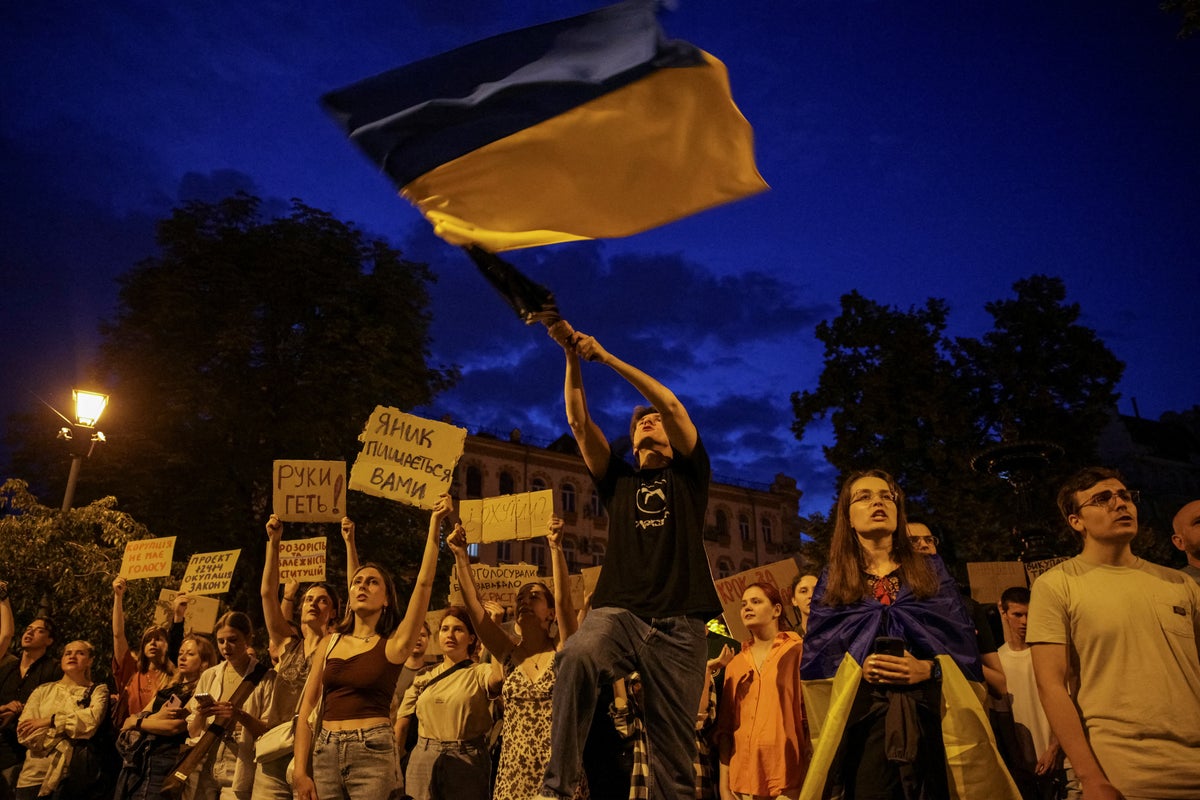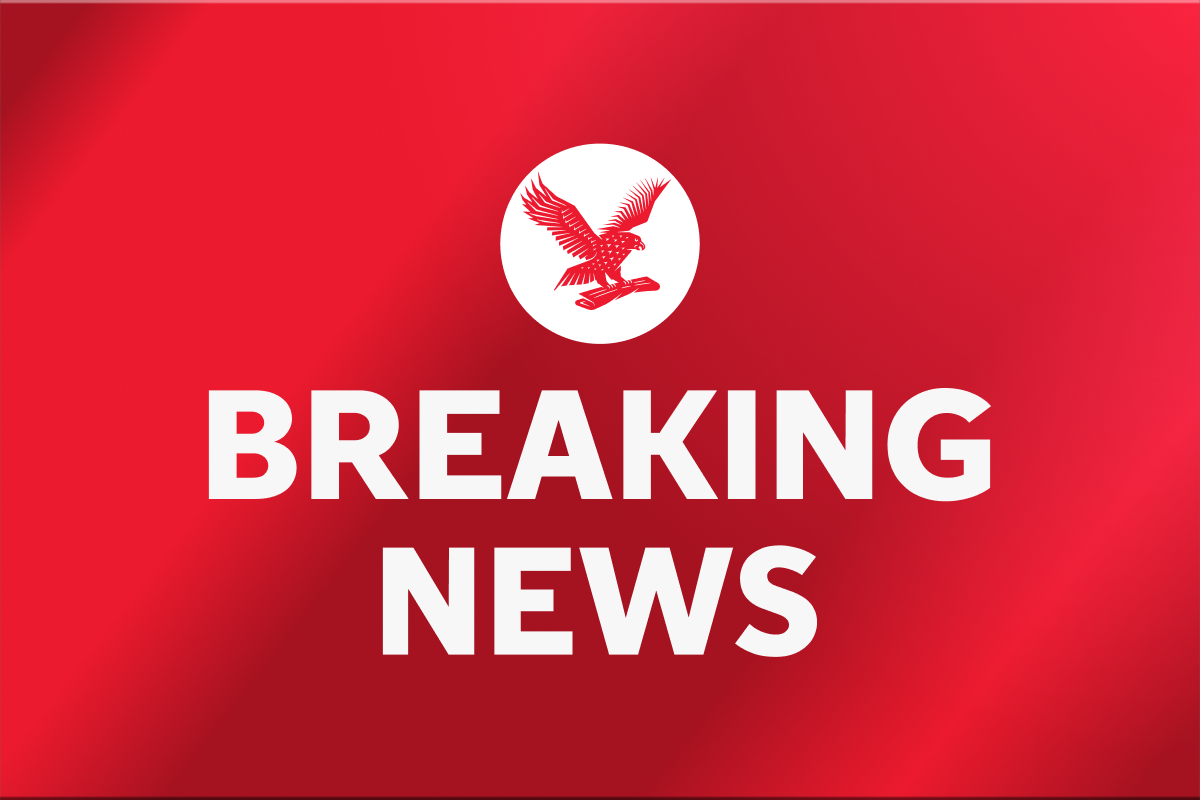Thousands of people, including veterans, took to the streets of Kyiv on Tuesday evening to protest against president Volodymyr Zelensky’s anti-corruption measures.
The demonstrations, which have reportedly spread to Lviv and Dnipro, are the first public protests against the Ukrainian president since the Russian invasion in February 2022.
Some of those outside Mr Zelensky’s presidential office claimed Ukraine was “turning into Russia”, with placards reading “welcome to Russia”, according to reports.
“We chose Europe, not autocracy,” read one placard by a demonstrator. Another read: “My father did not die for this.”
So why are people protesting, and what are the anti-corruption measures? The Independent takes a closer look below.
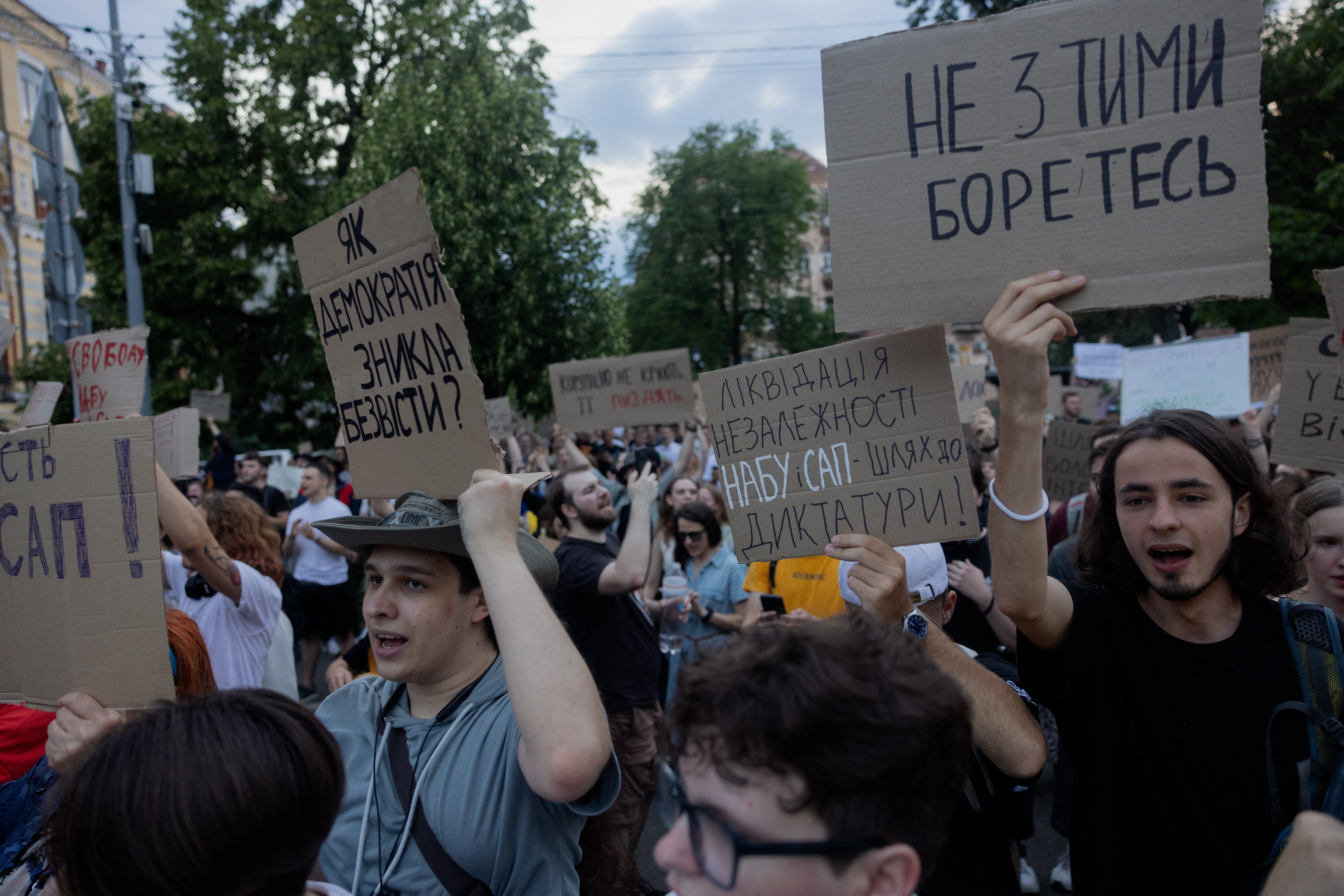
Follow the latest updates on the Ukraine war here
What are the anti-corruption measures?
Kyiv has toughened restrictions on two anti-corruption agencies at the centre of the government’s reform drive, rolling back their autonomy in favour of tighter executive control.
Stamping out endemic graft – a form of political corruption – is a requirement for Kyiv to join the European Union as well as to secure billions in Western aid.
Amendments passed on Tuesday grant the general prosecutor, appointed by the president, strict control over the National Anti-Corruption Bureau (Nabu) of Ukraine and the Specialised Anti-Corruption Prosecutor’s Office.
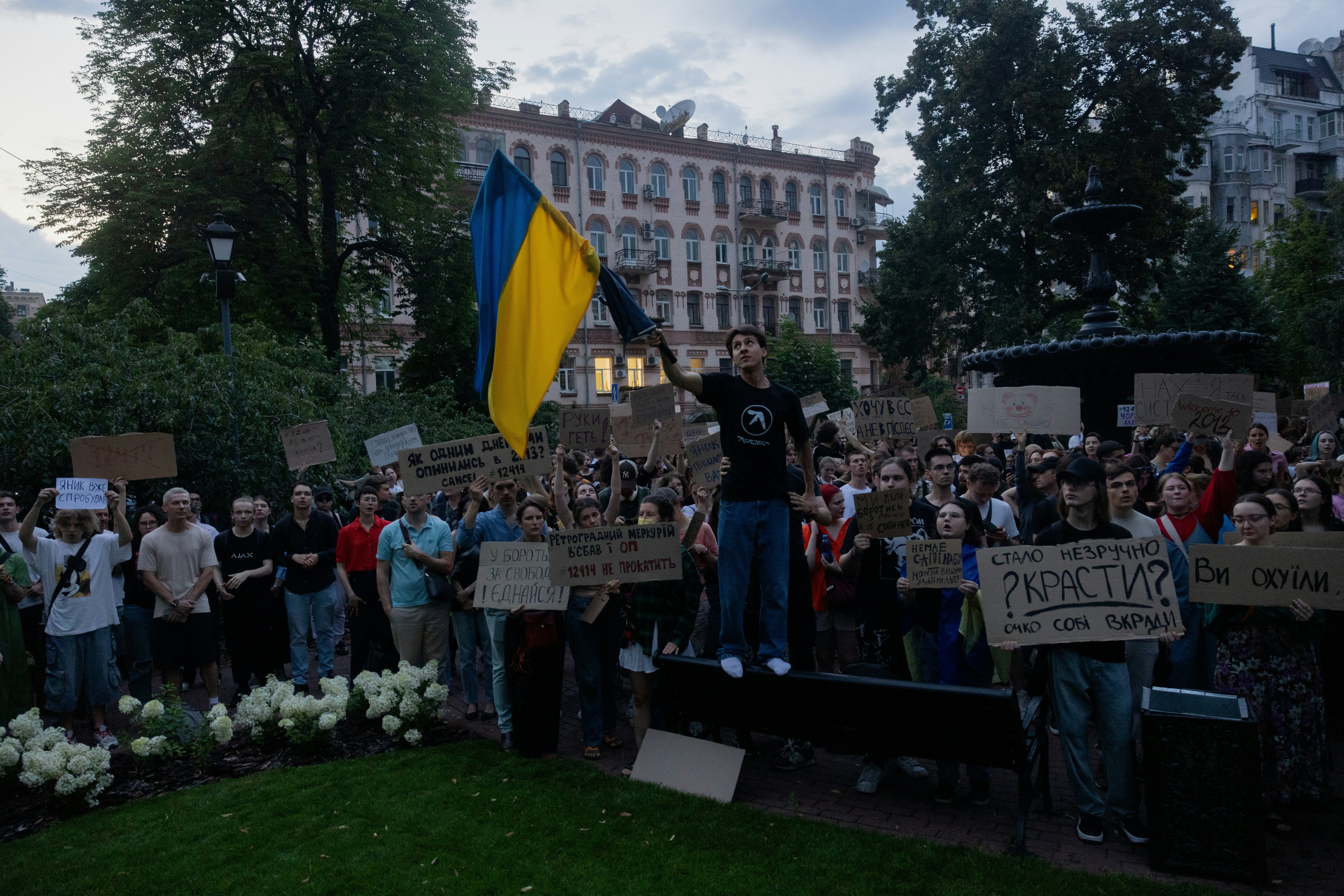
The vote came a day after Kyiv’s domestic security agency arrested two NABU officials on suspicion of ties to Russia and conducted sweeping searches into agency employees on other grounds.
Mr Zelensky, whose party holds a majority in parliament, approved the amendments late on Tuesday.
Anti-corruption bodies would continue to function “but without any Russian influence”, the president said.
Why are people protesting?
Demonstrator Vladyslava Kirstyuk, 18, said memories of her childhood in occupied eastern Ukraine, after Russia’s covert invasion in 2014, left a strong impression.
“I know what it means for one person to have all the power, when nothing is transparent and everything is working against you,” she said. “I don’t want it to be the same for us here.”
Oleksiy Goncharenko, an opposition MP who voted against the measure, said the bill was “about the end of the independence of anti-corruption bodies inside Ukraine”, blaming the “personal choice of President Zelensky”.
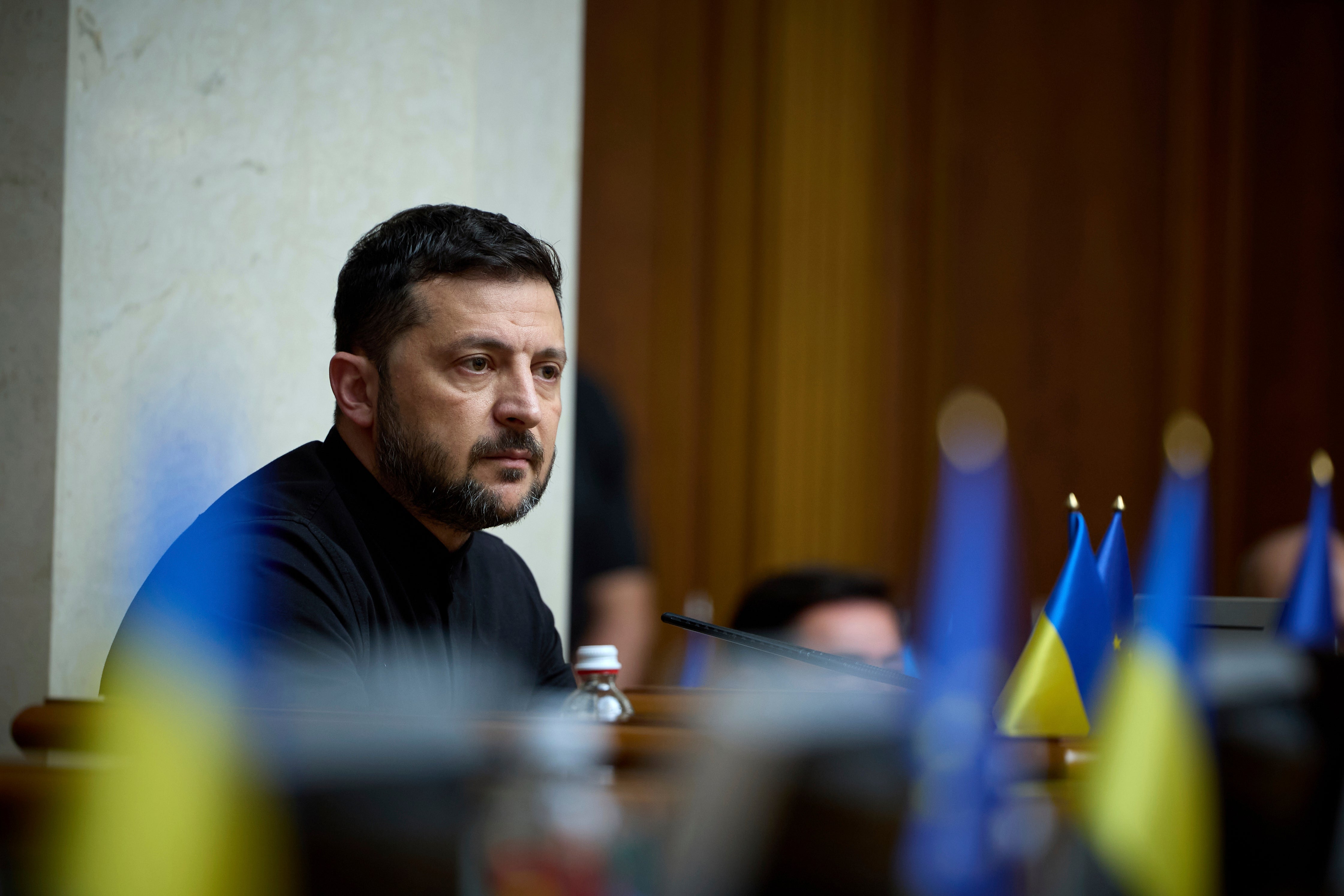
What has been the reaction?
The vote drew sharp criticism from the heads of both agencies and a top EU official, and spurred the largest public protests since Russia’s full-scale invasion of Ukraine in 2022.
Writing on X, EU enlargement commissioner Marta Kos said she was “seriously concerned” by Tuesday’s vote.
“The dismantling of key safeguards protecting NABU’s independence is a serious step back,” she said, adding that rule of law was at “the very centre” of EU accession talks.
Benjamin Haddad, France’s European Affairs minister, said it was not too late for Ukraine to reverse its decision to roll back the autonomy of two anti-corruption agencies at the centre of the country’s reform drive.
A Western diplomat familiar with Ukraine’s reform effort described the developments as “the most dangerous moment” yet for the independence of anti-corruption authorities.
“The Ukrainian side is testing the limits more and more,” the person said, referring to the patience of Kyiv’s allies.
After the protests, Mr Zelensky met anti-corruption and security officials on Wednesday and promised the creation of a joint plan to fight corruption within two weeks.
“We all hear what society is saying. We see what people expect from state institutions and ensured justice and the effective functioning of each institution,” he said.

